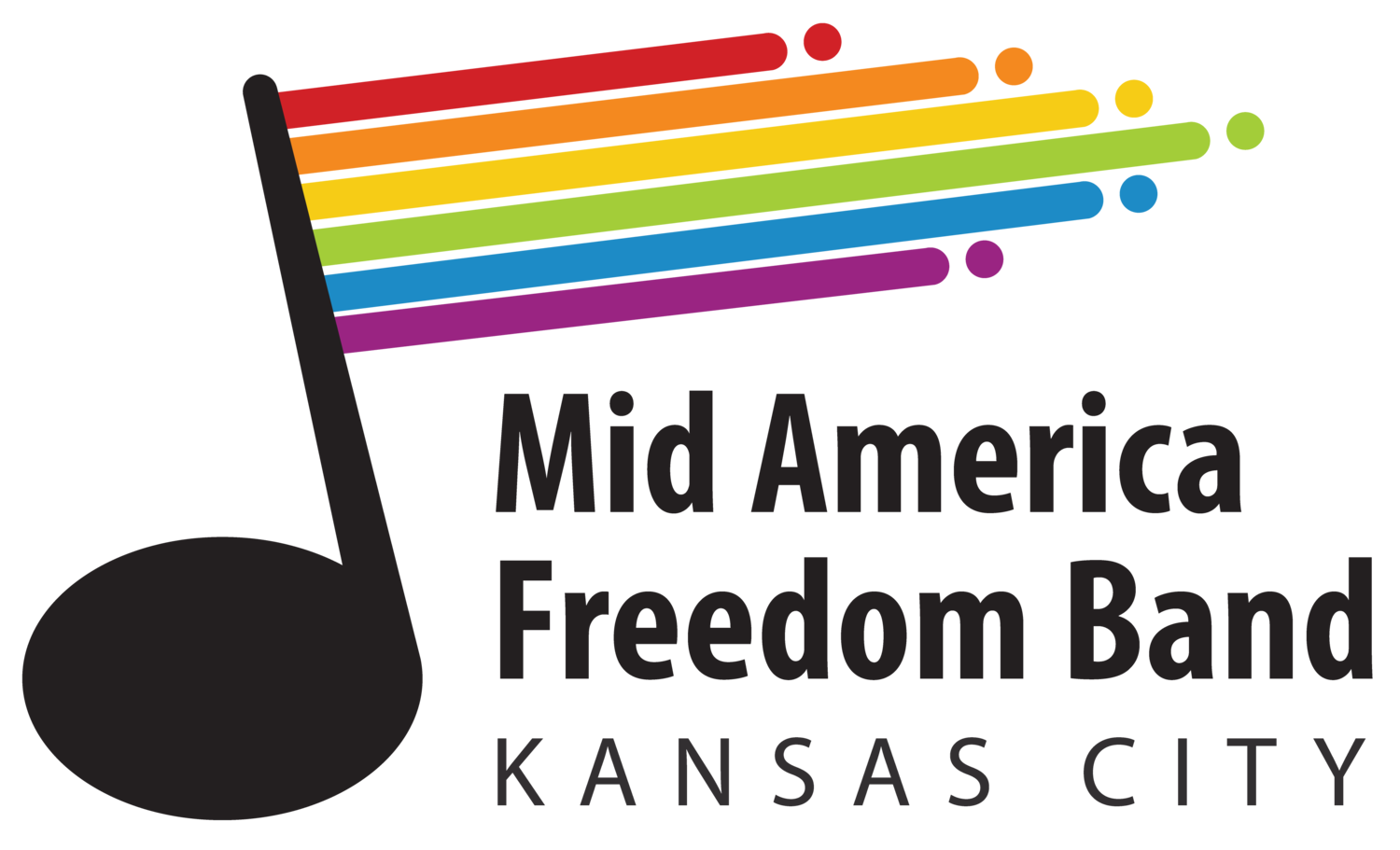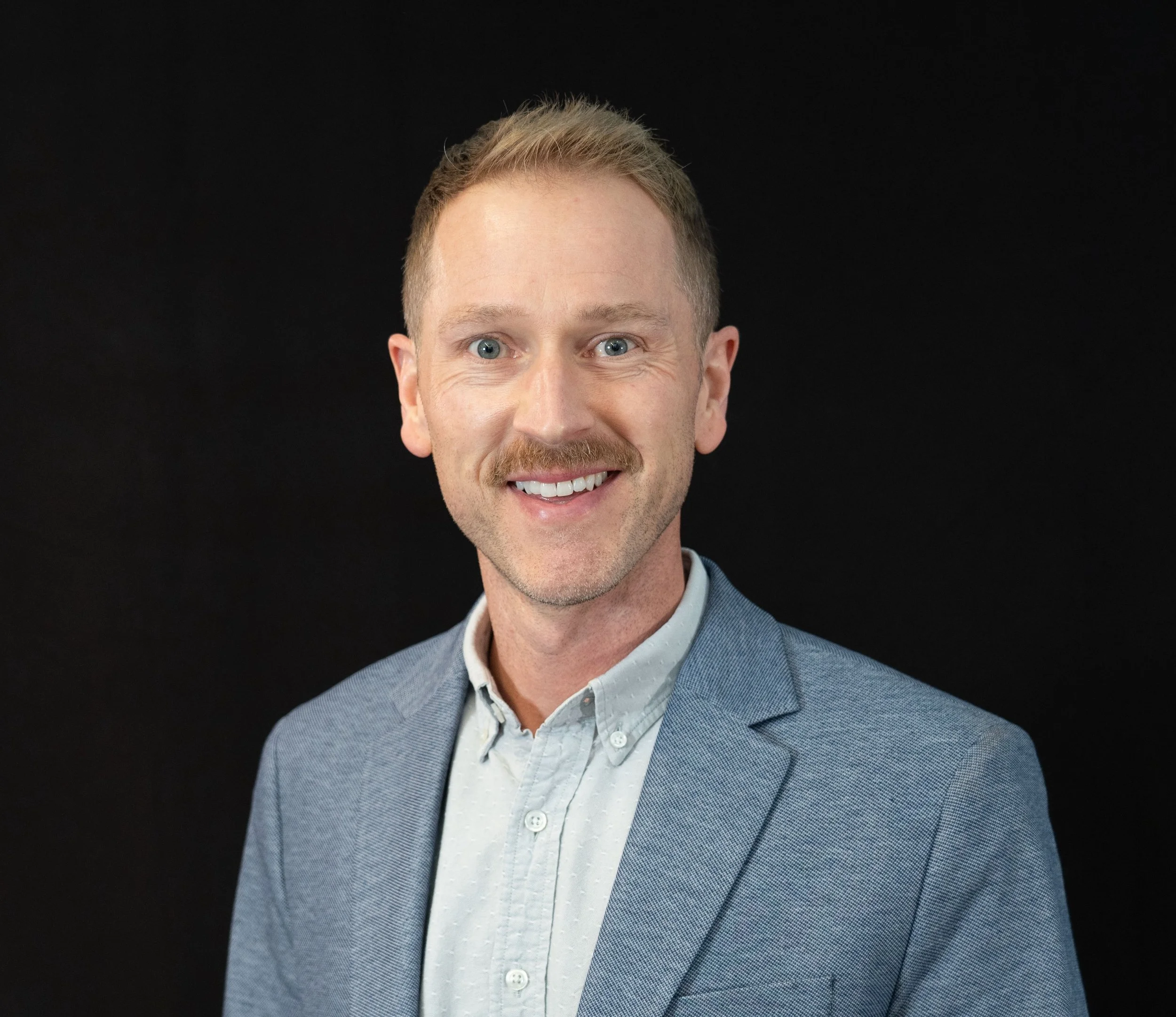Home isn’t just a place — it’s the people, stories, and traditions that make us who we are. We open our 23rd season with a program that celebrates belonging in all its forms. From sweeping soundscapes that evoke wide-open prairies to intimate, lyrical pieces that reflect personal journeys, each work invites you to think about the spaces and communities you call your own. This is music that feels familiar yet full of discovery, weaving together themes of love, memory, and shared identity. Whether you’ve lived in Kansas City your whole life or have just arrived, you’ll find something here that speaks to your sense of home.
Tickets start at just $20.
Welcome to Season 23
On behalf of the Mid America Freedom Band, welcome to the opening concert of our 23rd season: For All Who Call This Home.
This evening’s performance is a milestone for our organization, guided by the artistry of our two Artistic Director finalists, Dr. Daniel Kirk and J.J. Pearse. They have taken on a rigorous process with generosity and grace, dedicating their Thursday nights and countless hours preparing for this moment. Their leadership on the podium tonight is a true gift, and we are grateful for the commitment and vision they have shared with us.
We also want to recognize Jessie Davis and Nathan Brown, whose dedication to programming this concert has been invaluable. Their deep knowledge and appreciation of the concert band repertoire helped shape a program that honors tradition and speaks to our present moment. We thank them for their leadership, insight, and passion.
The theme of this concert, For All Who Call This Home, feels especially meaningful now. The world can feel unsettled, but music reminds us of what holds true: belonging. Home is not just where we live, but the people, stories, and traditions that ground us. It is found in connection, memory, and community—the very things we celebrate through music tonight.
From Sousa’s White Rose March and Butler’s Cosmopolitan America to Bennett’s nostalgic Suite of Old American Dances, Bernstein’s lively Divertimento, and the evocative voices of Jolley, Thomas, and Still, each work reflects a different facet of belonging. Together, they weave a musical journey that is both familiar and full of discovery.
Thank you for joining us tonight and for helping make Mid America Freedom Band a home where music, joy, and community thrive.
With love, pride, and gratitude,
The MAFB Board of Directors & Staff
Program Notes
-
A lesser-known gem from America’s March King, White Rose March (1917) Sousa wrote The White Rose in 1917 for a York, Pennsylvania Flower Festival observing “White Rose Day,” a nod to the town’s namesake emblem from England’s House of York. The wartime shift in priorities led organizers to cancel the celebration, but the march was still performed publicly by combined bands and even received a Victor Talking Machine recording. It never joined Sousa’s blockbuster hits, yet its buoyant strains and ceremonial trio show the composer’s polished craft at a moment when America’s concert life was intertwined with civic pageantry.
-
Often called the “Dean of African American Composers,” William Grant Still brought the sounds of spirituals, blues, and folk idioms into the concert hall. Folk Suite for Band (1956) celebrates America’s cultural mosaic through three movements based on folk tunes from the United States, Mexico, and Panama. Still’s harmonies are lush yet accessible, weaving together rhythmic vitality and heartfelt melody in a work that uplifts the everyday songs of ordinary people.
-
Thomas’s Shenandoah reimagines the beloved American folk song with emotional depth and modern harmonic color. Originally written to honor LGBTQIA+ students and teachers, this arrangement captures the yearning of the original melody while layering it with new meaning—mourning, resilience, and hope. Through lush orchestrations and expressive pacing, Thomas transforms a familiar tune into a powerful statement of inclusion and remembrance.
-
Commissioned for the Boston Symphony Orchestra’s centennial in 1980, Bernstein’s Divertimento is a joyful tribute to the city, the orchestra, and the sheer fun of making music. The work’s eight short movements draw from a wide array of styles—classical, jazz, march, waltz, and even samba—all united by Bernstein’s irrepressible wit and rhythmic brilliance. It’s a musical love letter that delights both players and audiences alike.
-
Known as “The Female Sousa,” Helen May Butler was one of the few women to lead a professional touring band in the early 1900s. Her Cosmopolitan America March celebrates the nation’s growing diversity at the dawn of the century. With bold brass themes and crisp counterpoint, the march exudes pride and progress—an apt reflection of Butler’s own trailblazing spirit.
-
Commissioned by the Alpha Tau chapter of Kappa Kappa Psi for the University of Texas at Austin Wind Ensemble and premiered on March 5, 2017 under Jerry Junkin, Jolley’s work reflects on the 1966 UT Tower shooting and the Texas campus carry law that took effect on its 50th anniversary. The composer’s note frames the piece as a “celebration of life” for victims and survivors alike. Sonic markers—tolling chimes, massed winds and brass, and searing climaxes—create a vigil that is repeatedly broken, then renewed, mirroring public remembrance. The title comes from Alejandra Garza’s article “‘The Eyes of the World Are Upon You, Texas’” from Behind the Tower: New Histories of the UT Tower Shooting.
-
Bennett’s 1949 suite captures the spirit of early 20th-century American social dances—from the Cake Walk and Western One-Step to the Rag and the Waltz. Each movement is infused with nostalgia and craftsmanship, showing why Bennett, best known as an orchestrator for Broadway greats like Gershwin and Rodgers, remains a cornerstone of the wind band repertoire. The suite closes the program with rhythmic sparkle and irresistible charm.
Meet our AD Candidates!
Dr. Daniel Kirk
Dr. Daniel Kirk is a Learning and Development professional with the Johnson County (KS) Library system and former conducting faculty member at Reinhardt University. He directed bands at Blue Valley Northwest and Blue Valley West High Schools in Overland Park, KS, where his ensembles were awarded the highest Kansas State-level honors by the National Foundation for Music Education and performed at the Kansas Music Educators’ Convention. Daniel was recognized nationally with the George N. Parks Leadership in Music Education Award and invited to present at the Midwest Band and Orchestra Clinic.
He holds degrees from Missouri Western State University, Northwestern University, and Michigan State University, and credits his teachers and mentors—Mallory Thompson, Avian Bear, David Bennett, Jane Wheat, and Kevin Sedatole—for their lasting influence. Daniel calls Kansas City home with his partner David, an elementary music teacher, and proudly embraces life as a dog dad to two basset hounds, Lucy and Hazel. He also teaches fitness classes at Woodside.
J.J. Pearse
No stranger to a musical adventure, J.J. Pearse finds joy in the expanse across the realm of music. Covering an instrumental range from spoons to theremin, no musical stone is left unturned in his journey. From performances playing percussion to those in conducting and singing, he finds a home in the under-appreciated works across time.
J.J. is a current member of the Mid-America Freedom Band, Kansas City’s chapter of the Pride Bands Association, and has served on the boards for MAFB, the Kansas City Electronic Music & Arts Alliance, and newEar Contemporary Chamber Ensemble across KC.
Previous engagements include conducting Kate Soper’s Voices from the Killing Jar and serving as the title role in Peter Maxwell Davies’ Eight Songs for a Mad King, both performances part of the Omaha Under the Radar Festival. J.J. has also worked with noted composers including George Lewis, John Luther Adams, and David Lang as part of MidAmerican Center for Contemporary Music’s annual New Music Festival.
In his time as an undergraduate at Indiana University, J.J. was awarded the prestigious Performer’s Certificate in addition to earning his Bachelor’s Degree in Percussion Performance, having studied under John Tafoya and Kevin Bobo. He went on to acquire his Master’s Degree in Orchestral Conducting at Bowling Green State University, under the baton of Dr. Emily Freeman Brown.


